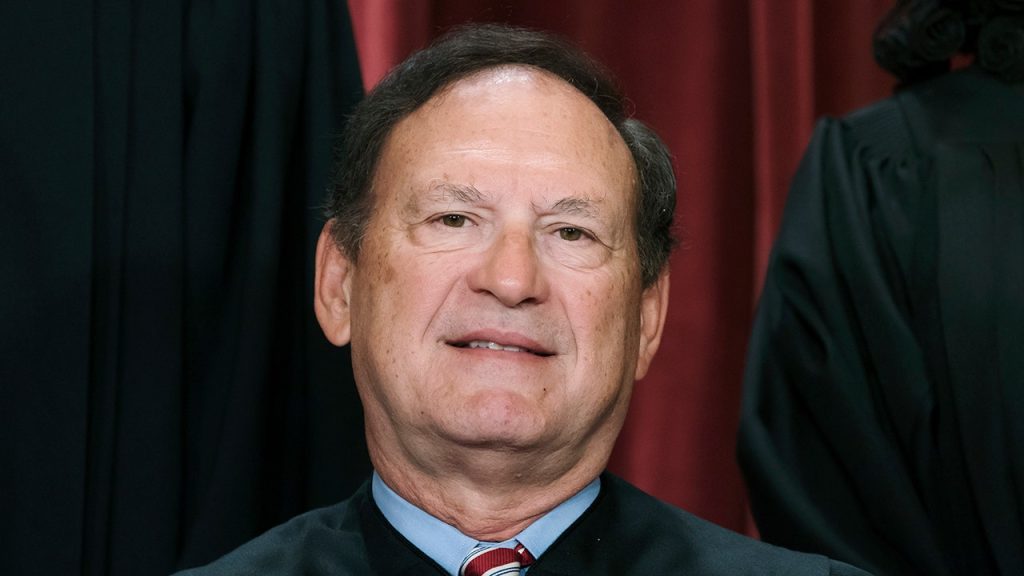Supreme Court Justice Samuel Alito questioned Justice Department attorneys during arguments on whether former presidents have “absolute immunity” from criminal prosecution. Alito raised concerns about the potential for presidents to be prosecuted by bitter political opponents if immunity claims are rejected. The case could set a precedent for future presidents and have significant implications for the functioning of democracy. The official question being considered is whether a former president enjoys immunity from prosecution for conduct during their time in office.
The issue of presidential immunity stems from Special Counsel Jack Smith’s federal election interference case in which he charged former President Trump. Trump pleaded not guilty to all charges and argues that he should be immune from prosecution for official acts done as president. Both liberal and conservative justices on the Supreme Court have raised concerns about the broader implications of the decision. Justices have questioned whether removing the potential for criminal liability for presidents could embolden them to commit crimes in office. This decision will have significant implications for the presidency and future presidents.
Former President Trump has repeatedly claimed that he is being prosecuted by his political opponents, specifically President Biden. Trump has warned Americans that cases against him are being brought by his opponents in an attempt to prevent him from campaigning in the 2024 election cycle. Trump has been charged with falsifying business records in the first degree by Manhattan District Attorney Alvin Bragg. Despite being prohibited from attending the Supreme Court arguments, Trump has continued to maintain that his opponents are using the justice system to target him.
Justice Alito, along with other justices, raised concerns about the potential destabilizing effect of prosecuting a former president by a bitter political opponent. The court is considering the implications of allowing former presidents to be criminally prosecuted for official acts done in office. Justices have discussed the need for mechanisms to contest election results to prevent a cycle of criminal prosecution of former presidents. The decision by the court will have long-lasting implications for the presidency and the functioning of democracy in the United States.
The Supreme Court justices focused on the broader implications for future presidents during the arguments on presidential immunity. Justices expressed concerns about the disincentive for presidents to commit crimes if immunity from prosecution is taken off the table. Questions were raised about the potential for future presidents to exploit the lack of criminal liability while in office. The decision by the court will establish a rule for future generations and set a precedent for whether former presidents can be prosecuted for actions taken during their time in office.
Former President Trump’s claims of being targeted by political opponents through the justice system have been a focal point of the arguments on presidential immunity. Trump has warned of the potential for presidents to face prosecution by their political rivals if immunity claims are rejected. The decision by the Supreme Court on this issue will have major implications for the presidency and future presidents. The court is considering whether former presidents should be immune from prosecution for official acts conducted during their time in office.


